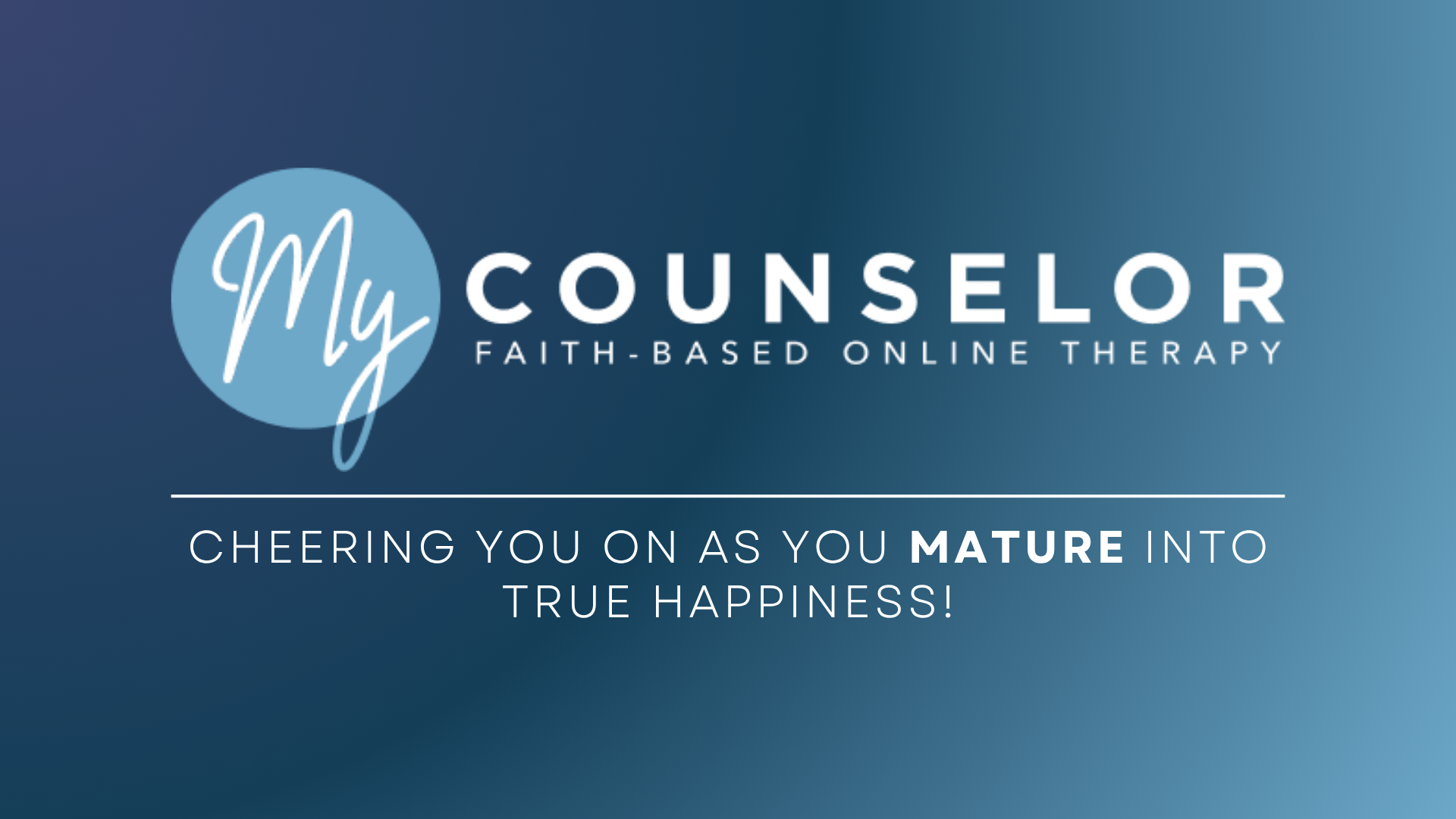Finding Your Path: Selecting the Ideal Christian Counselor
This article is based on scientific evidence and clinical experience, written by a licensed professional and fact-checked by experts.
Posted: November 16, 2023
Estimated reading time: 20 minutes
In This article
- All Great Counselors Have Grey Hair
- Great Counselors Give Great Advice
- A Good Counselor Will Know the Answer
- The Right Counselor Will Have Similar Life Experiences
- The Best Counselor For Me Will Be The Same Gender
- All Counselors Are Pretty Much The Same
- If They’re Busy, They Must be Good
- The MyCounselor.Online Advantage

Expect Excellence: The Hallmarks of Great Christian Counseling
The journey to spiritual and mental healing is both profound and deeply personal. For Christians, the intertwining of faith and well-being further emphasizes the significance of this voyage. As such, the decision to seek counseling is not merely about finding a professional to talk to, but about discovering a guide, proficient in navigating the delicate balance between mental health and spiritual growth. But what defines great counseling, and what should Christians expect from it?
Understanding the Landscape of Counseling
The mental health sector, vast and varied, offers myriad counseling services. However, a common misconception exists that all counseling services, especially those detached from hospital systems, provide consistent care. Many of these services operate with counselors as independent contractors, leading to limited quality control and training. This often results in inconsistent service and limited accountability for therapeutic effectiveness.
The Essence of Great Counseling
Great counseling transcends this norm. It’s not about the mere exchange of information or having a counselor with shared life experiences or gender. Great counseling revolves around understanding the intricate design of our nervous system, a design divinely crafted by God to heal, adapt, and overcome challenges. It’s about leveraging this knowledge to address trauma, facilitate growth, and pave the way for thriving lives.
Such counseling doesn’t merely apply a band-aid to one’s problems. Instead, it delves deep, offering holistic healing and transformation, aiming to achieve specific life goals. Those seeking counsel don’t only desire someone who can empathize; they yearn for a guide who can effectively lead them to their desired outcomes.
Organizations like MyCounselor.Online have set exemplary standards in the field. They don’t just hire based on qualifications but ensure counselors undergo rigorous training through a post-graduate residency, akin to medical residencies. This intense focus on skill enhancement and quality control ensures that clients receive the best care.
When selecting a counselor, Christians must consider factors beyond mere credentials:
1. Is the counselor trained in proven effective models?
2. Does their approach harmonize modern neuroscience with biblical truths?
3. Do they emphasize the therapeutic relationship, using it as a tool for transformative experiences?
4. Are they committed to continuous growth through regular training and feedback mechanisms?
For Christians embarking on a counseling journey, understanding the hallmarks of great counseling is paramount. It’s about ensuring that the chosen path aligns not only with your mental well-being but also resonates with your faith. By prioritizing quality, expertise, and an unwavering commitment to holistic care, Christians can ensure that their counseling experience is both transformative and deeply rooted in their spiritual journey. Remember, the goal is not just healing but achieving a state of wholeness in alignment with God’s divine plan.
All Great Counselors Have Grey Hair
Age vs. Skill in Christian Counseling
In the realm of Christian counseling, a prevailing belief exists that age equates to wisdom, expertise, and effectiveness. While there’s a comforting appeal to imagining an older, wiser counselor guiding us through life’s tribulations, research indicates that the effectiveness of counseling is not tied to age. Instead, what truly counts is the counselor’s understanding of the nervous system, God’s design for healing, and the commitment to continuous learning and growth.
It’s essential to recognize God’s intricate design of the human nervous system. This divine architecture allows individuals to heal, adapt, and overcome adversities. A deep understanding of this system provides counselors with the tools to help their clients navigate traumas and challenges effectively. This knowledge isn’t exclusive to those who’ve aged but is available to all who diligently seek and study.
Age doesn’t necessarily guarantee a proclivity for continued growth and learning. While experience can lead to increased confidence, it doesn’t always correlate with improved performance. In fact, many seasoned counselors may fall into the trap of complacency, believing they’ve reached the pinnacle of their expertise. Without a commitment to ongoing professional development and supervision, this misplaced confidence can inadvertently lead to a decline in counseling outcomes.
What truly matters in the journey of counseling is a robust support system and the acquisition of relevant skills. Having a system that consistently challenges and supports counselors in their development ensures that they remain at the forefront of therapeutic techniques and practices. It’s this relentless pursuit of knowledge and skill, bolstered by faith, that guarantees positive outcomes in counseling, not merely the number of years a counselor has lived.
As Christians, we are called to seek truth and wisdom. It’s crucial to challenge preconceived notions and embrace what research and God’s design reveal about effective counseling. Let us remember that it’s not the age of the counselor that determines success, but their skills, understanding, and commitment to ongoing growth. By recognizing and accepting this truth, we pave the way for more effective, transformative Christian counseling experiences.
Great Counselors Give Great Advice
Redefining Great Counseling: Guidance without Dictation
Within Christian communities, there’s a lingering belief that the hallmark of a great counselor is their ability to dispense sagacious advice. Many believe that older counselors, enriched by a lifetime of experiences, are best positioned to offer these golden nuggets of wisdom. However, this notion rests on a misconception. True excellence in counseling is not about giving advice but facilitating an environment that nurtures self-discovery, healing, and personal growth.
The fundamental essence of great counseling aligns with the way God designed our nervous system. It is not a one-way street where the counselor imparts wisdom and the counselee merely absorbs. Instead, it is a relational experience, a shared journey where the counselor and the individual work together, allowing the divinely designed nervous system to heal and recalibrate. This approach fosters mental and relational health, empowering individuals to arrive at their own decisions.
There’s profound wisdom in the belief that individuals, when given the right support and understanding, can find their own path and make decisions that align with God’s purpose for them. By not dictating what one should do, counselors respect the individual’s God-given free will, and the intrinsic capability each person has to seek and find answers.
Moreover, healing the nervous system through relational experiences offers lasting change. When a counselor simply provides advice, it offers only a temporary solution and can even create dependency. In contrast, facilitating experiences that lead to healing ensures that individuals are better equipped to handle future challenges, make decisions, and thrive in all facets of life.
The Christian community must recognize that the true power of counseling is not in the advice given but in the space created for healing and self-discovery. It’s a space where God’s divine design for our nervous system is honored, and individuals are empowered to chart their own course. Let us embrace a more holistic understanding of counseling, one that aligns with God’s design and the transformative power of relational experiences.
A Good Counselor Will Know the Answer
Beyond Information: The True Essence of Great Counseling
There’s a sentiment in society that views counselors as vast reservoirs of answers, expected to dispense solutions to every human dilemma. This perspective assumes that counseling is primarily an exercise in transferring knowledge, a belief that assumes every problem can be resolved if one just has the right information. Yet, the heart of great counseling lies far beyond mere informational exchanges. Indeed, for many problems, information alone is not the answer.
Take, for instance, the journey of weight loss. Conventional wisdom dictates a simple formula: consume fewer calories and engage in more physical activity. However, if mere information was the key, wouldn’t weight loss challenges be easily overcome by everyone? The reality is that many individuals understand this formula, yet struggle to apply it consistently. This underscores the idea that knowledge, in many instances, is not the bottleneck.
God’s intricate design of the human nervous system offers a deeper insight into the transformative power of counseling. True counseling is not a monologue where an expert imparts wisdom. Instead, it’s a dialogue, a relational experience that serves as a vessel for healing. By fostering a genuine connection and understanding the nuances of the nervous system, great counselors facilitate an environment where individuals can experience mental and relational healing. This healing, in turn, provides the foundation for individuals to not only know what’s best for them but to act upon that knowledge with conviction and consistency.
Within the Christian context, it’s essential to recognize that counseling mirrors Jesus’s approach to healing. Christ’s ministry wasn’t just about imparting wisdom; it was deeply relational, built on understanding, compassion, and connection. Similarly, counselors are not mere information dispensers; they’re guides, facilitating an environment where God’s design for healing can manifest.
The Christian community should shift its understanding of counseling from a transactional exchange of information to a transformative journey of healing. It’s in this sacred space, where God’s design is honored, that individuals find the strength to thrive and realize their God-given potential. Let us cherish and promote this holistic approach to counseling, celebrating its profound impact on our journey toward wholeness.
The Right Counselor Will Have Similar Life Experiences
The Heart of Effective Counseling: Beyond Shared Experiences
It’s an understandable human inclination to seek camaraderie through shared experiences. Within the Christian community, many believe that counselors with similar life stories — be it age, marital status, parenting journeys, or vocational experiences — are inherently better suited to guide and assist. The premise is simple: “Someone who has walked in my shoes will understand me better.” However, while shared narratives can form strong foundations for friendships, counseling is a unique domain where professional expertise, not personal parallels, plays a pivotal role.
To draw an analogy, imagine seeking medical help. Would a patient prioritize a doctor who has experienced the same ailment, or would they prioritize one who is proficient in treating that ailment? The therapeutic world functions similarly. The crux of effective counseling is not in shared experiences but in a deep understanding of the nervous system and its divinely ordained healing capabilities.
God, in His infinite wisdom, crafted our nervous system with the inherent ability to heal, adapt, and overcome adversities. The role of a great counselor is to navigate this intricate design, leveraging knowledge to transform trauma and pave pathways for individuals to thrive. The real metric of a counselor’s effectiveness isn’t in the parallels of their life story but in their therapeutic skills, their commitment to continuous growth, and the robust support systems they employ in their practice.
Furthermore, a counselor’s primary objective is to facilitate healing and help individuals achieve their specific goals. The therapeutic relationship, by design, is professional, built on expertise, trust, and a clear boundary that differentiates it from friendships. This distinction ensures that the focus remains on the individual’s healing journey, unclouded by personal anecdotes or biases.
While shared experiences can offer a comforting starting point, Christians seeking counseling should prioritize professional expertise over personal parallels. It’s the counselor’s knowledge, skills, and commitment to growth that truly make a difference. Remember, what we truly seek in counseling is not mere relatability but the transformative power to achieve our goals and experience the fullness of God’s plan for our lives.
The Best Counselor For Me Will Be The Same Gender
Beyond Gender: The True Measure of a Counselor’s Effectiveness
In our search for understanding and healing, it is natural to gravitate towards what feels familiar. Many believe that a counselor of the same gender will inherently possess a deeper understanding of their struggles and experiences. This sentiment, deeply rooted in the desire for empathy, often stems from the thought, “Someone of my gender will truly ‘get’ me.” Yet, in the realm of therapeutic relationships, the markers of effectiveness transcend gender.
Firstly, it’s essential to differentiate between friendships and therapeutic relationships. While shared gender might foster mutual understanding in friendships, the objective of counseling is different. A therapeutic relationship is carved from professional expertise, trust, and the singular goal of facilitating healing and transformation. Surprisingly, working with someone of the opposite gender can present unique perspectives and challenges that catalyze growth and healing in ways previously unimagined.
The heart of effective counseling lies in understanding the intricate design of our nervous system, as ordained by God. It is about recognizing the inherent capability of this system to heal, adapt, and flourish. The role of the counselor is to navigate this landscape, leveraging knowledge and expertise to transform trauma and usher in a season of thriving. This journey, powered by empathy, is primarily steered by the counselor’s therapeutic skills, continuous commitment to growth, and the robust support systems they utilize.
Moreover, it’s vital to acknowledge the rigorous training counselors undergo. They are adept at assisting individuals irrespective of gender differences and are trained to uphold the sanctity and safety of the therapeutic relationship through strict professional boundaries.
While gender familiarity might offer an initial comfort, Christians seeking counseling should look beyond this parameter. What truly matters is the counselor’s expertise, dedication, and their ability to guide individuals towards achieving their goals. Remember, in our quest for healing, what we truly desire is not just someone who understands but someone equipped to lead us to transformation. Trust in the process, and let the care of trained professionals, irrespective of gender, guide you towards God’s plan for healing and wholeness.
All Counselors Are Pretty Much The Same
The Nuances of Counseling: Choosing the Right Counselor for Your Journey
In our pursuit of healing and transformation, many embark on the journey of counseling with the belief that all counselors, being trained professionals, are equally adept. This common misconception suggests that any counselor can lead us to our desired outcomes. However, just as in any profession, the efficacy among counselors varies. While some possess the ability to catalyze life-altering changes, others could be a waste of time and money.
Traditional markers of expertise, such as years of experience or academic qualifications, while commendable, don’t always correlate with successful therapeutic outcomes. The crux of effective counseling isn’t just in a counselor’s credentials but in their understanding of the intricate design of our nervous system, as divinely crafted by God. It’s about recognizing this system’s potential to heal, adapt, and foster growth.
The essence of genuine counseling transcends mere relatability. What individuals truly seek is not a mirror of their experiences but a guide, equipped with therapeutic prowess, who can lead them towards achieving their goals. This involves leveraging knowledge of the nervous system to address trauma, facilitating a thriving life, and adopting a system that continuously refines the counselor’s skills throughout their career.
When searching for the right counselor, Christians must delve deeper, asking pivotal questions that determine a counselor’s effectiveness:
- Does the counselor employ a model that’s proven effective and resonates with evidence-based practices?
- Is their approach rooted in contemporary neuroscience, viewed through the biblical lens, ensuring a harmony of science and faith?
- Does their method prioritize the therapeutic relationship, using it as a vessel for creating transformative relational experiences?
- Is the counselor committed to continuous growth, partaking in regular supervision, video reviews, and coaching sessions to enhance their skills?
- Is there an emphasis on tailored training from their employing organization, catering specifically to their developmental needs?
- Lastly, do they employ an outcome monitoring system, gathering consistent feedback to gauge their effectiveness?
As Christians, when seeking counseling, it’s paramount to understand that the journey’s success often lies in choosing a counselor equipped not just with credentials but with the right therapeutic tools and commitment to growth. Choose a counselor who resonates with these benchmarks, ensuring that your journey towards healing aligns with God’s divine plan for your well-being.
If They’re Busy, They Must be Good
Quality Over Quantity: Navigating the World of Counseling
In a world where time is often equated with effectiveness, it’s easy to fall into the trap of believing that a counselor with a packed schedule is automatically superior. After all, if they’re in demand, they must be doing something right. But diving deeper into the realm of counseling reveals a more nuanced truth. Simply having a full schedule does not equate to providing holistic and transformative care.
The present landscape shows a shortage of mental health professionals, leading insurance systems to overload their counselors with clients, offering brief therapy sessions. While these may seem financially favorable due to insurance coverage, they often only provide temporary relief, akin to placing a band-aid on a deep wound. True healing, the kind that addresses the root and promises lasting change, requires more than just brief interventions.
In many spheres of life, the adage “you get what you pay for” holds, and counseling is no exception. Renowned counselors in private practice, backed by impeccable reputations, may charge fees that seem steep, often exceeding $200 an hour. But their expertise and the rapid results they can deliver make this a worthwhile investment. Their refined skills can expedite your journey to wellness, making the process efficient and transformative.
However, it’s also crucial to remember that every seasoned counselor started as a novice. A well-trained counselor, even with limited hands-on experience but fortified with excellent supervision and support, can be just as effective in guiding you towards your goals. Experience is invaluable, but it isn’t the sole determinant of a counselor’s capability.
For Christians, the journey to healing, both mental and spiritual, is sacred. It’s a path that requires guidance, understanding, and compassion. When choosing a counselor, prioritize quality, expertise, and the promise of holistic care over mere financial considerations or misconceived indicators like a full schedule.
In conclusion, as we seek healing and guidance, let’s make informed choices, understanding that true value isn’t just in the price tag but in the depth of care, understanding, and transformation that a counselor brings to the table. With faith as our compass, let’s find the right guide to lead us to wholeness and lasting change.
The MyCounselor.Online Advantage
Navigating the complex world of counseling can be daunting. For Christians, the pursuit of mental and spiritual healing is supported by faith and the guidance of a skilled counselor. With a plethora of options available, one might assume that all counseling services are created equal. However, this couldn’t be further from the truth.
A significant portion of counseling services, especially those unaffiliated with hospital systems, operate under group practices or connector organizations. While these systems have their merits, there’s an underlying issue: most of these counselors function as independent contractors. This means that the overseeing organization has limited purview into training or quality assurance due to legal constraints, lest these contractors be reclassified as employees. The result? High variability in service quality and minimal accountability for efficacy.
In stark contrast stands MyCounselor.Online, a standard setter for rigor and excellence in the counseling field. MCO directly addresses the prevailing industry issues by setting stringent selection criteria, accepting only the top 2% of applicants. But that’s just the start. Instead of treading the independent contractor route, MyCounselor.Online hires its counselors as employees, initiating them into a rigorous two-year post-graduate residency, similar to medical residencies for doctors following medical school.
Imagine a fresh graduate, already equipped with a master’s in mental health, being sculpted and honed through meticulously designed rotations, covering a plethora of mental health issues. This is exactly what MyCounselor.Online offers. During each rotation, these budding counselors receive structured classroom training and, more importantly, real-time supervision from seasoned professionals. These experts provide invaluable feedback by analyzing actual counseling sessions, ensuring that the new counselors’ skills are sharpened and refined to perfection.
But the commitment to excellence doesn’t end there. MyCounselor.Online has instituted a rigorous feedback loop. Any review that falls short of a 5-star rating triggers a comprehensive case review. Both the counselor and a supervisor dissect the session, extracting learning points and areas of improvement. Such a profound level of dedication to skill enhancement and quality control is indeed a rarity in the mental health sector.
For Christians, seeking counseling isn’t just about addressing mental concerns; it’s a journey intertwined with their faith and spiritual well-being. This makes the choice of counselor even more critical. With MyCounselor.Online, not only is there the assurance of top-tier professional care, but there’s also the comfort of knowing that these counselors understand and respect the nuances of Christian faith.
The path to mental and spiritual healing requires faith and the right guide. And for those seeking unparalleled professionalism, consistent quality, and a deep understanding of Christian values, MyCounselor.Online emerges as the obvious choice. Let’s prioritize quality, growth, and faith as we embark on our journey towards healing and wholeness.
Back to topThis article is based on scientific evidence and clinical experience, written by a licensed professional and fact-checked by experts.
About the Author

Josh Spurlock
Josh Spurlock MA, LPC, CST, has a BA in Biblical Languages and a Masters in Counseling. He is a Licensed Professional Counselor (LPC), holding licenses in Missouri, Colorado, and Florida. He is also a Certified Sex Therapist (CST), Level 2 AEDP Therapist, and an Ordained Minister. He is an Advanced Practice Clinician, with over 10,000 hours of clinical experience. He specializes in Marriage Counseling, Sex Therapy, Family Counseling, and works with Executives, Pastors, Business Owners, and Ministry Leaders. Learn more about Josh Spurlock at JoshSpurlock.com.
Learn More About JoshIn This article
- All Great Counselors Have Grey Hair
- Great Counselors Give Great Advice
- A Good Counselor Will Know the Answer
- The Right Counselor Will Have Similar Life Experiences
- The Best Counselor For Me Will Be The Same Gender
- All Counselors Are Pretty Much The Same
- If They’re Busy, They Must be Good
- The MyCounselor.Online Advantage
Share this article
View more articles

Navigating Conflict and Reconciliation with Adult Children: Practical Tips for Parents
By: Danielle Schaefer







